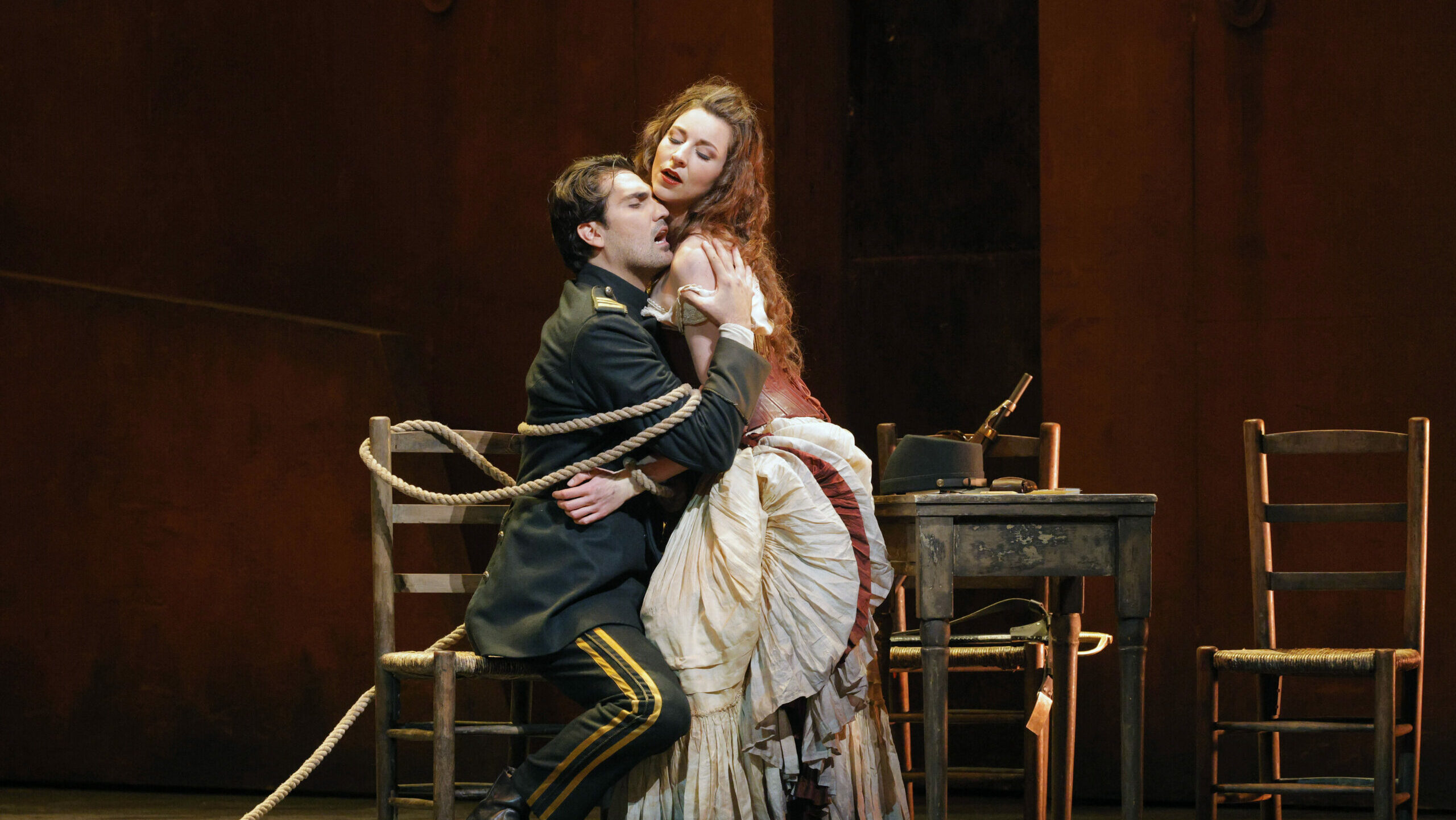

By the 20th century, it fell out of the repertory even in Italy. However, Maffio Orsini’s bouncy drinking solo “Il segreto di esser felici” has remained in the concert repertoire of mezzos and contraltos including Ernestine Schumann-Heink.
The Metropolitan Opera has performed it for one night only, a single performance on December 5, 1904, which occasioned the debut of Maria de Macchi in the title role with the legendary Enrico Caruso as the tragic Gennaro. The critics were not kind to Mme. de Macchi but were even less kind about the opera. Richard Aldrich in The New York Times was particularly dismissive:
Donizetti filled it full of his prettiest and most inconsequential melodies, which flow unctuously through the score, with no imaginable relation to anything that goes on upon the stage, and whose only object is plainly to give the singers something to sing. They certainly give no kind of expression to the dark deeds and flatterings of wickedness that constitute the texture of this opera. It is a repetition of empty formulas and passages, and is absolutely without a trace of dramatic characterization. Modern historians have done a good deal to rehabilitate the name and fame of the wicked Borgia; but there is not much but blame for her doings as they were represented by Donizetti’s librettist, who followed [Victor] Hugo’s deep-dyed tragedy. Nobody would suspect it, however, from the music that is sung by her and about her.
I would say that the gaiety of much of the music is placed in stark ironic contrast with dramatic music that prefigures the dramatic innovations of Giuseppe Verdi. Donizetti’s brilliant music creates a glittering world of opulence, decadence and hedonistic sensuality with dark political intrigue, psychological conflict and forbidden human longings (including incest) emerging from underneath.
The close friendship between Maffio Orsini (musico contralto) and the tenor Gennaro hints at homoerotic attachment. The foundling Gennaro is looking for his lost mother but his initial interest in Lucrezia shows Oedipal overtones.
Victor Hugo said that Triboulet (the original Rigoletto jester figure in his Le Roi s’amuse) and Lucrezia Borgia are parallel figures in that they are bad people redeemed by their love of their only child who they are doomed to destroy indirectly through their wicked deeds. Thus, they destroy the one person they are capable of loving. Rigoletto and Lucrezia Borgia have many structural and stylistic similarities showing how Verdi was influenced by Donizetti.
Concert performances have abounded in our fair city of Manhattan with the occasional staging semi or otherwise. In 1965, American Opera Society presented the opera in concert intending the title role for Marilyn Horne. However, Horne became pregnant with her daughter Angela and the AOS turned to a Spanish soprano debutante who had been active in Switzerland and Germany, a then unknown and unheralded Montserrat Caballé.
Caballé stepped on the Carnegie Hall stage an unknown and by the end of the evening was crowned a prima donna assoluta. Contracts at the Metropolitan Opera, opera houses worldwide and an RCA Victor recording contract followed immediately.
Since then New York City Opera staged the opera for Beverly Sills in 1976, Opera Orchestra of New York presented concert versions featuring Katia Ricciarelli in 1980 and Renée Fleming in 2000 (the diva very self-indulgent but rapturously received by a capacity audience).
Bel Canto at Caramoor in Katonah, NY has performed the opera twice in concert led by Will Crutchfield: First in 1998 with Melanie Helton in the title role (replacing Lauren Flanigan) with Viveca Genaux as Maffio Orsini. They repeated the work in 2014 for two concert performances featuring Angela Meade – the first doing the original 1833 version and at the second performance inserting later revisions by the composer including the 1840 revised trio finale.
Intrepid opera completists (such as this critic) went as far as to see the 1996 Opera Manhattan semi-staged performance conducted by company director Gabriel Guimaraes with Rosemary Barenz in the title role and the LoftOpera staged version in 2015 starring Joanna Parisi in Williamsburg, Brooklyn. Both these companies are now defunct (as are American Opera Society, Opera Orchestra of New York and in the form we knew it, the New York City Opera…).
All this prologue and history brings us to New Amsterdam Opera at the Center at West Park on Saturday, May 20, 2023 for the return of the infamous Borgia to our city courtesy of company founder, artistic director and conductor Keith Chambers. The company performed the original 1833 version (from the orchestral score donated by Eve Queler of Opera Orchestra of New York, the beloved nonagenarian maestro was in attendance). This means we did without the added Act I cabaletta for the soprano, either of the tenor arias interpolated for divos Mario and Ivanoff nor the beautiful final trio for soprano, tenor and bass.
The wicked poisoner showed herself in fine form, full of purple passion and lusty music-making that would gladden the heart of any bel canto enthusiast or opera lover in general. An uneven but committed cast and a stylish, well executed musical performance put the piece over with passion and dramatic force. Maestro Chambers led a quite respectable, slightly reduced orchestra (only a few horn flubs) as well as a reduced chorus of about a dozen singers placed in the choir loft behind the orchestra.
It was evident that there was enough rehearsal and Mo. Chambers had every aspect of the work well in hand. Tempos were clear, consistent and forward moving in a way that added to the drama but still gave the singers room to breathe and phrase. Dramatic tension was strongly conveyed while lyric aspects were carefully highlighted.
The supporting singers all showed fresh, youthful voices and good musicianship. Tenors Pedro Barrera and Scott Rubén La Marca alongside low-voiced company regulars Wilbert “Wil” Kellerman and Nate Mattingly made very positive, present contributions as Gennaro’s drinking and dueling buddies. We did not hear their offstage dying groans in the final scene however, a striking realistic touch. Striking tenor James Danner made his presence felt as the dastardly d’Este spy and henchman Rustighello.
In the demanding leading roles, the singers may not have measured up to Caballé, Sutherland, Devia, Horne, Kraus or Manuguerra et al., but as a team what they created was greater than the sum of their individual parts.
Mexican tenor Eric Botto as the unfortunate Gennaro revealed a bright but rather muscular lyric tenor – keenly focused, tight vibrato, slightly nasal with firm tops that lacked float or spin. His forthright delivery with added Latin dash robbed the character of lost boy pathos but brought virility and rebellious character to the role which can come off as passive.
As Lucrezia’s third husband (as the diva pointedly reminds him in their Act II confrontation) Alfonso I d’Este, Duke of Ferrara, bass Eric Lindsey revealed a large, dominating tone that made up in confident force and ease up and down the range for what it lacked in bel canto finesse. This is a big healthy voice with juice.
As Gennaro’s bosom buddy, Maffio Orsini, the young and radiantly lovely mezzo-soprano Madison Marie McIntosh was vivacious but literally out of her depth. The role is written not for a lyric mezzo but a coloratura contralto. McIntosh’s voice never settled into a groove unless soaring in the upper third of the voice.
I think this tells a tale… Marilyn Horne mentioned that as a teacher conducting master classes she was encountering a lot of young lyric sopranos wrongly classified as mezzo-sopranos. Horne after singing with the then mezzo Patricia Schuman in Rossini’s Tancredi, urged her to retrain as a soprano which was a success for her.
As a student at the Mannes School of Music, McIntosh began as a lyric soprano and according to a friend, possessed a soaring top register. Then it was determined by her voice teacher that young Madison Marie was actually a mezzo-soprano and she was pulled from the soprano role of Marzelline in the student production of Fidelio. She has since graduating from conservatory performed such roles as Carmen, Angelina in La Cenerentola and Rosina as well as the title role in Giulio Cesare.
Her performance of “Il segreto” revealed a lot of the problems – the timbre is fresh and warm but was oddly hollow and pushed in areas of the voice where a true mezzo should bloom. Even more telling, in the second verse of the brindisi there are exposed octave drops into the deep alto register – McIntosh omitted these phrases. Whereas roles like Zerlina, Hansel, Dorabella and Cherubino would still suit her fine, I think a change of direction is indicated for this lovely and gifted blonde charmer.
In the title role, soprano Toni Marie Palmertree was a revelation. Palmertree is a rising star who recently made her Metropolitan Opera and Chicago Lyric Opera debuts. Her “Voce dal Cielo” Met debut in Don Carlo last Fall didn’t make any specific impression on me beside general competence. But her Lucrezia revealed a rich distinctive voice with a lustrous top and excellent agility, including finely articulated trills sprinkled over the vocal line. The color is dark and fruity with a shimmering vibrato.
This is a voice that blooms at the top of the range and Palmertree scored mightily throughout the evening in soaring and blazing vocal lines in the high register. However, the part of Lucrezia is also a dramatic coloratura role with some heavy middle register writing and voce di petto declamation in Act II. In the lower voice writing Palmertree was comparatively weaker.
Palmertree is preparing for her stage debut performances of Puccini’s Tosca. She has already sung Liù, Madama Butterfly (her warhorse role) and Nedda in San Francisco, her home theater. (At the Met, she not only covered Elisabetta in Don Carlo but the title role of Medea!)
To perform verismo or dramatic Italian operas most effectively, Palmertree next might concentrate on developing a rounder middle with expansion and a vocally healthy solution to low voice declamation without sacrificing that glowing top. Whatever acting required in a concert staging, Palmertree was womanly and distressed in Act II but never sinister or deadly when Lucrezia reveals her vengeful, killer side.
Palmertree is a radiant young singer in the first stages of her career. Looking very diva-like in a sequined emerald evening gown, she unfurled a voice meant for bigger things which also is currently something of an exciting work in progress. I hope she keeps her youthful freshness as long as possible and lets her voice develop at its own pace.
Maestro Chambers is to be commended not only for his firm and inspiring musical direction but for finding credible and well-schooled voices in need of wider exposure and experience and coaching them into a cohesive ensemble. Long live New Amsterdam Opera and may we hear many more operas from them!
Photographs: Eli Jacobson


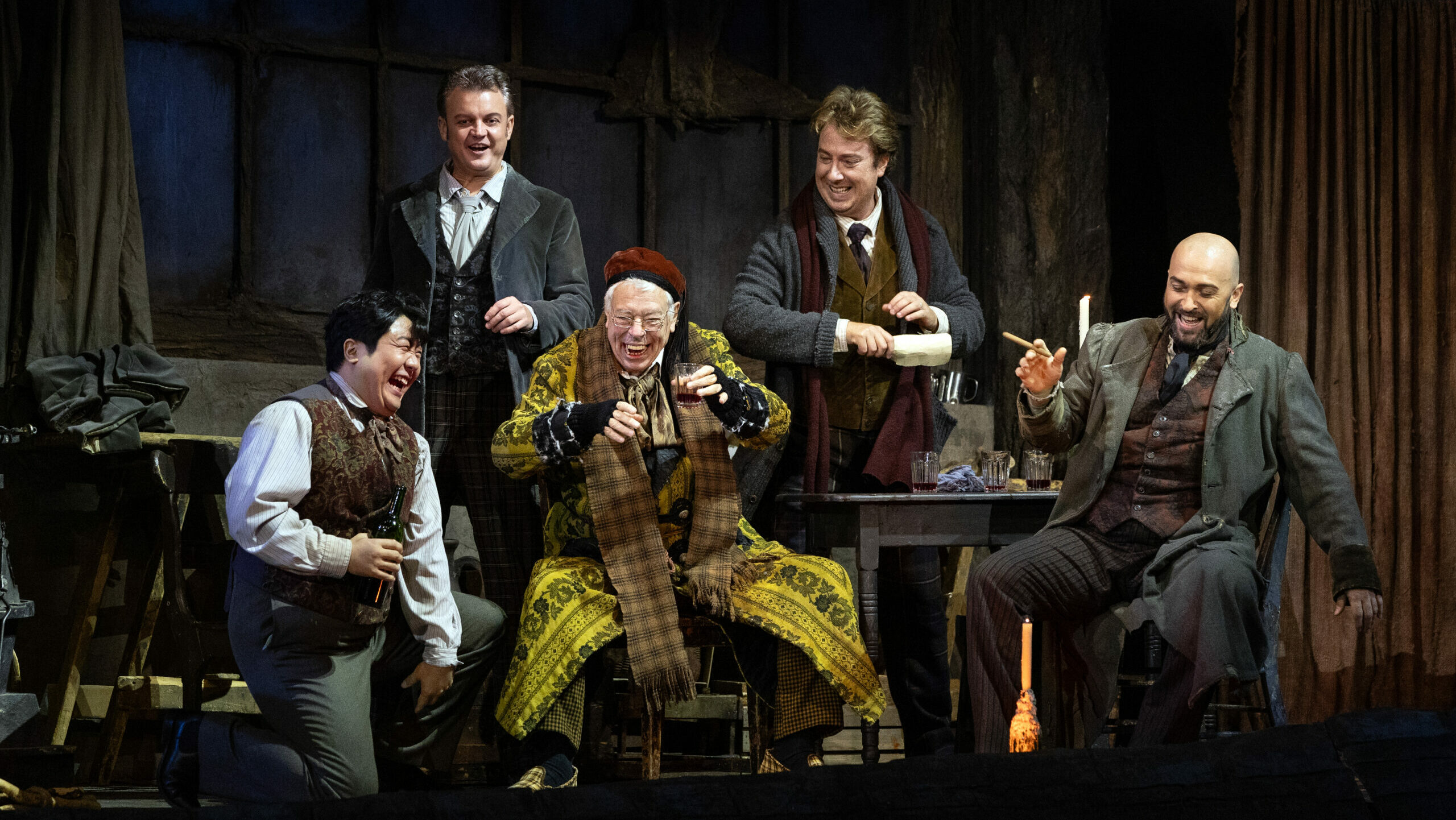
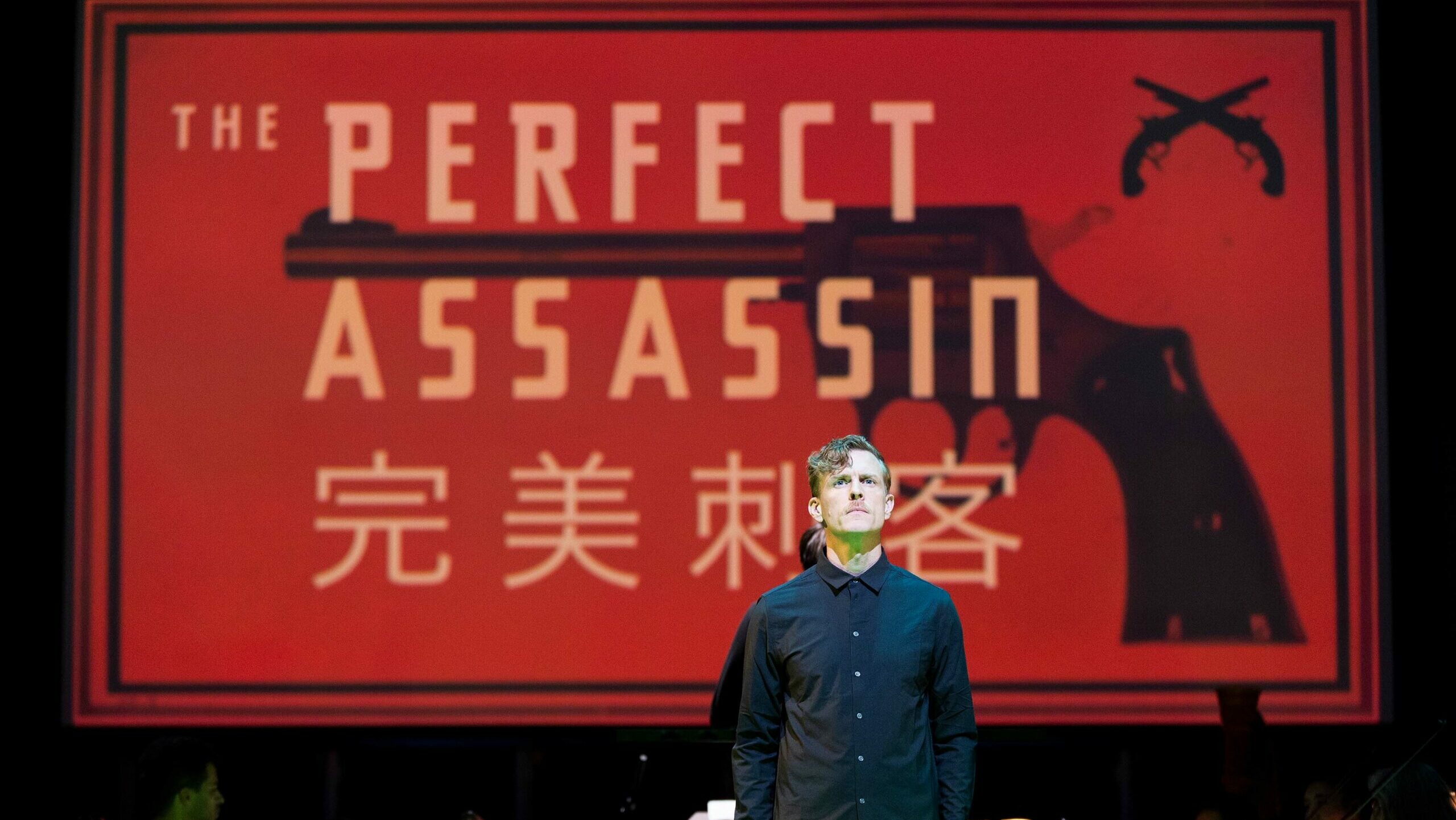
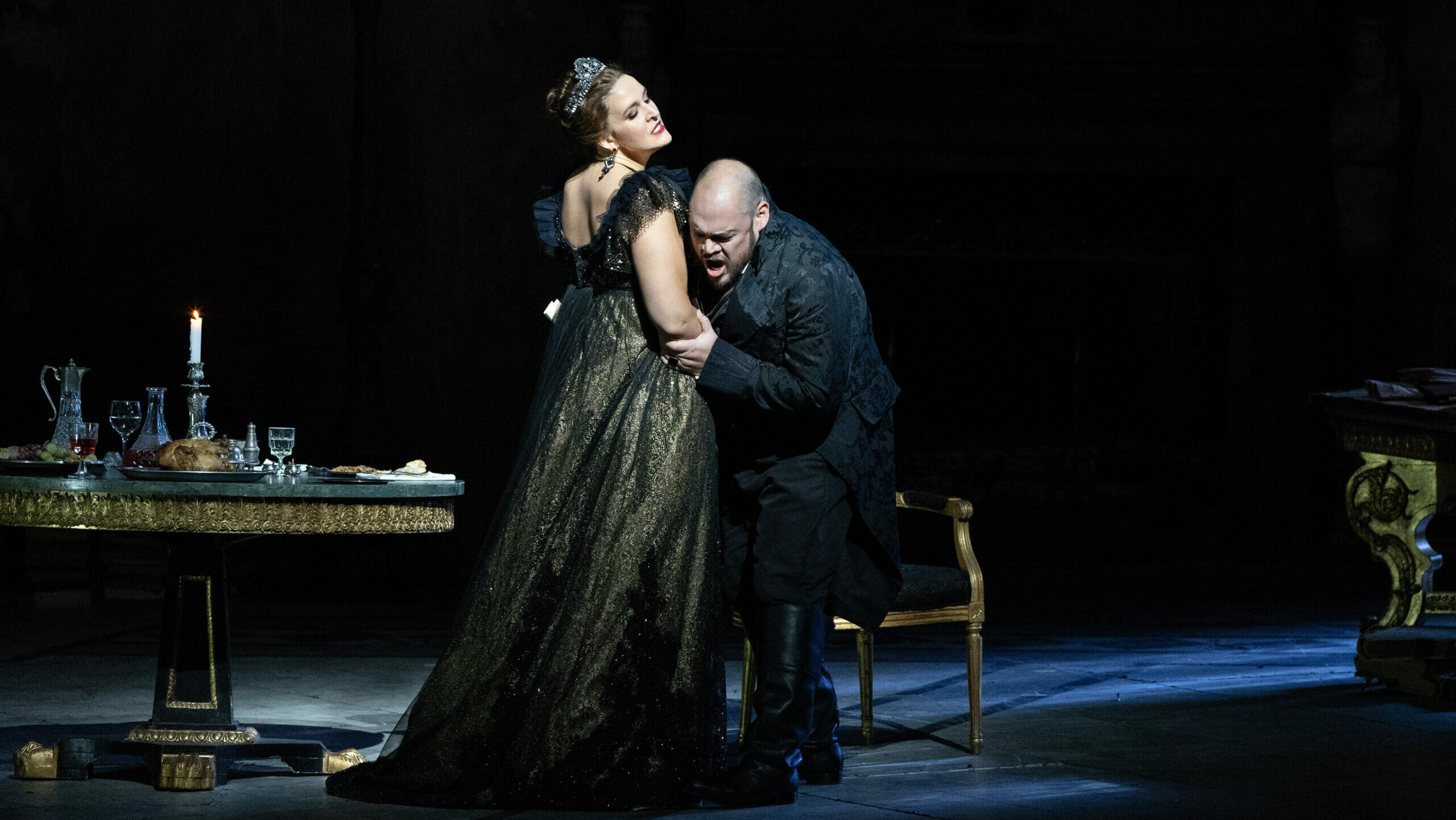


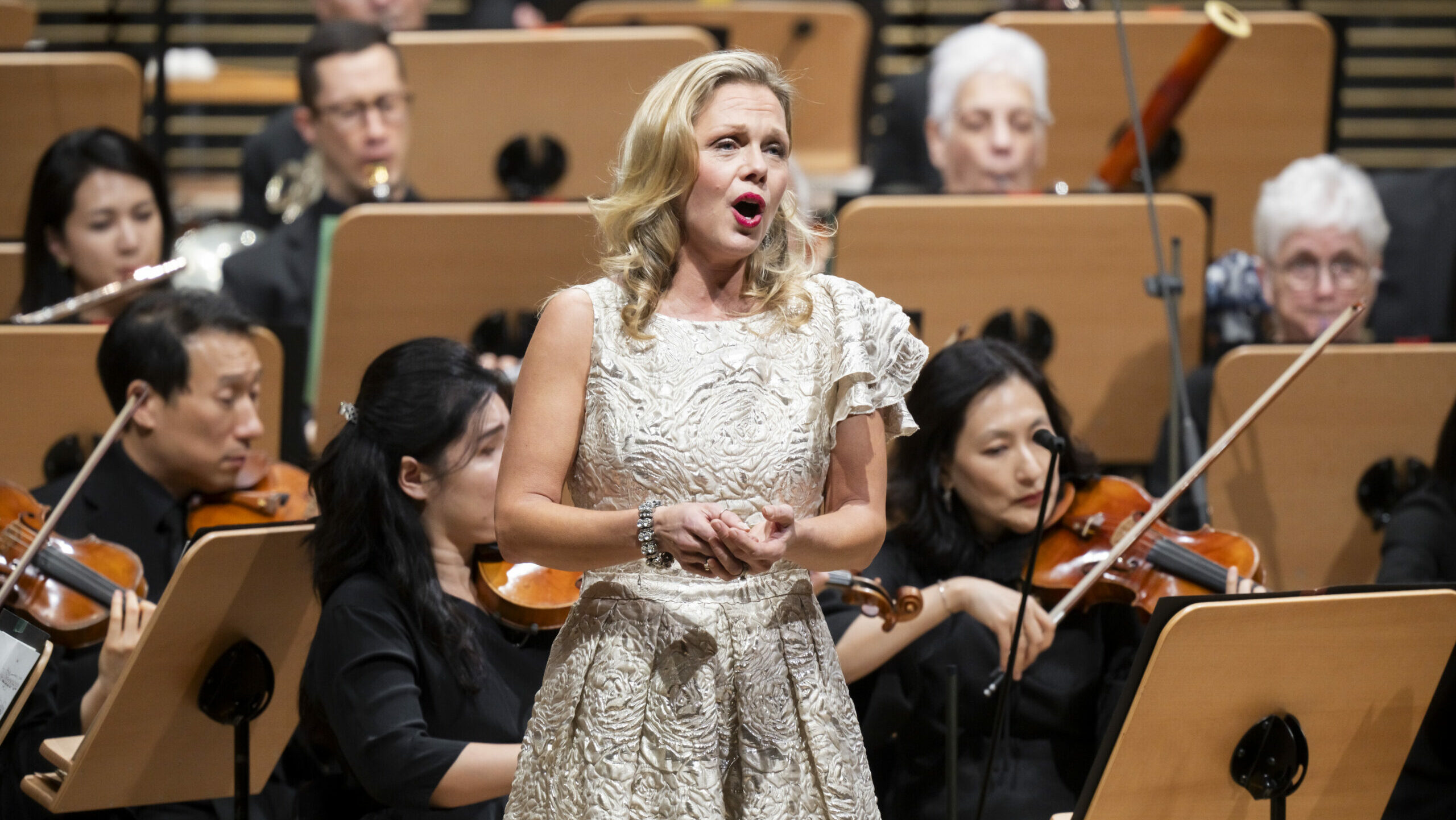
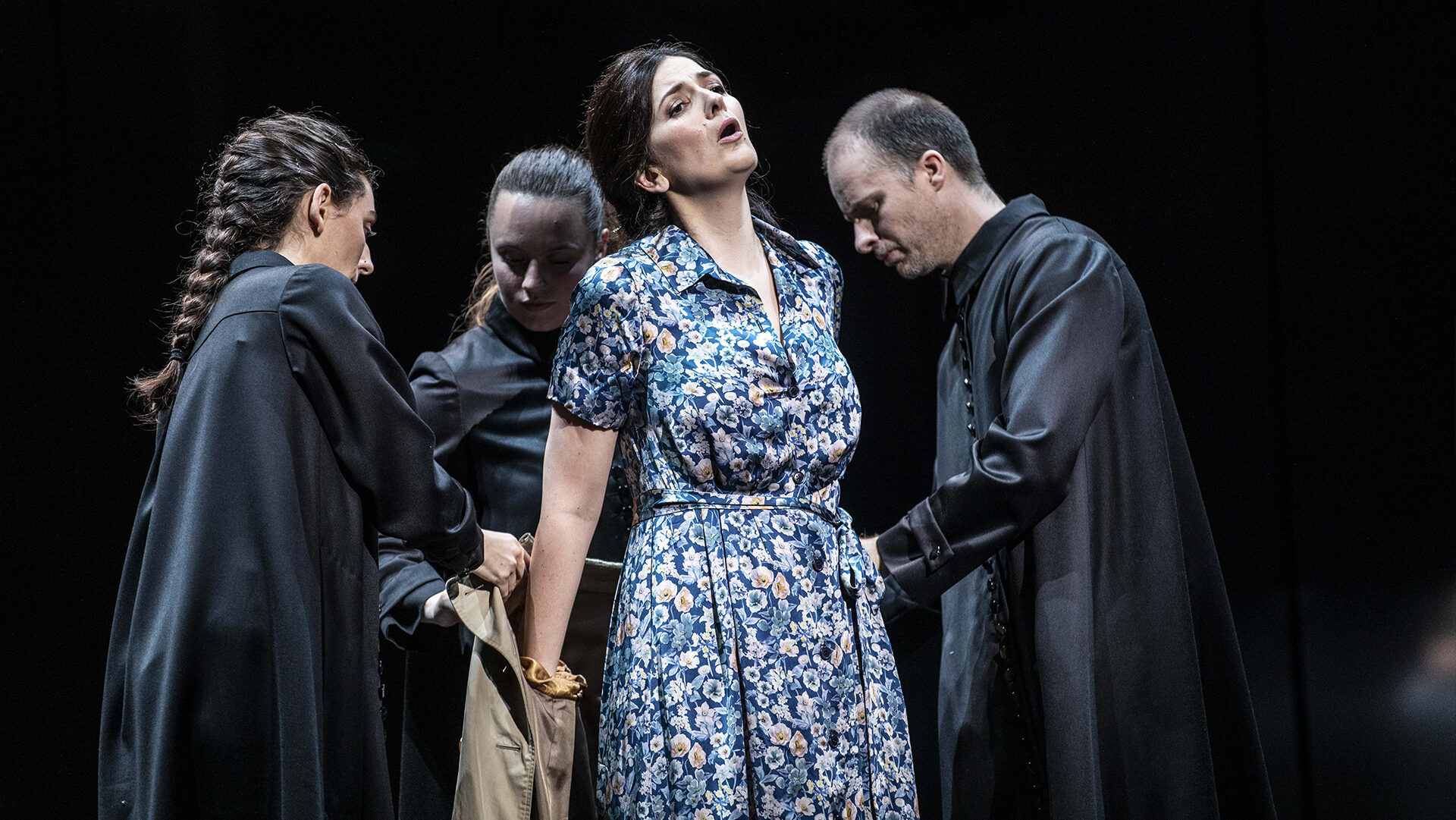
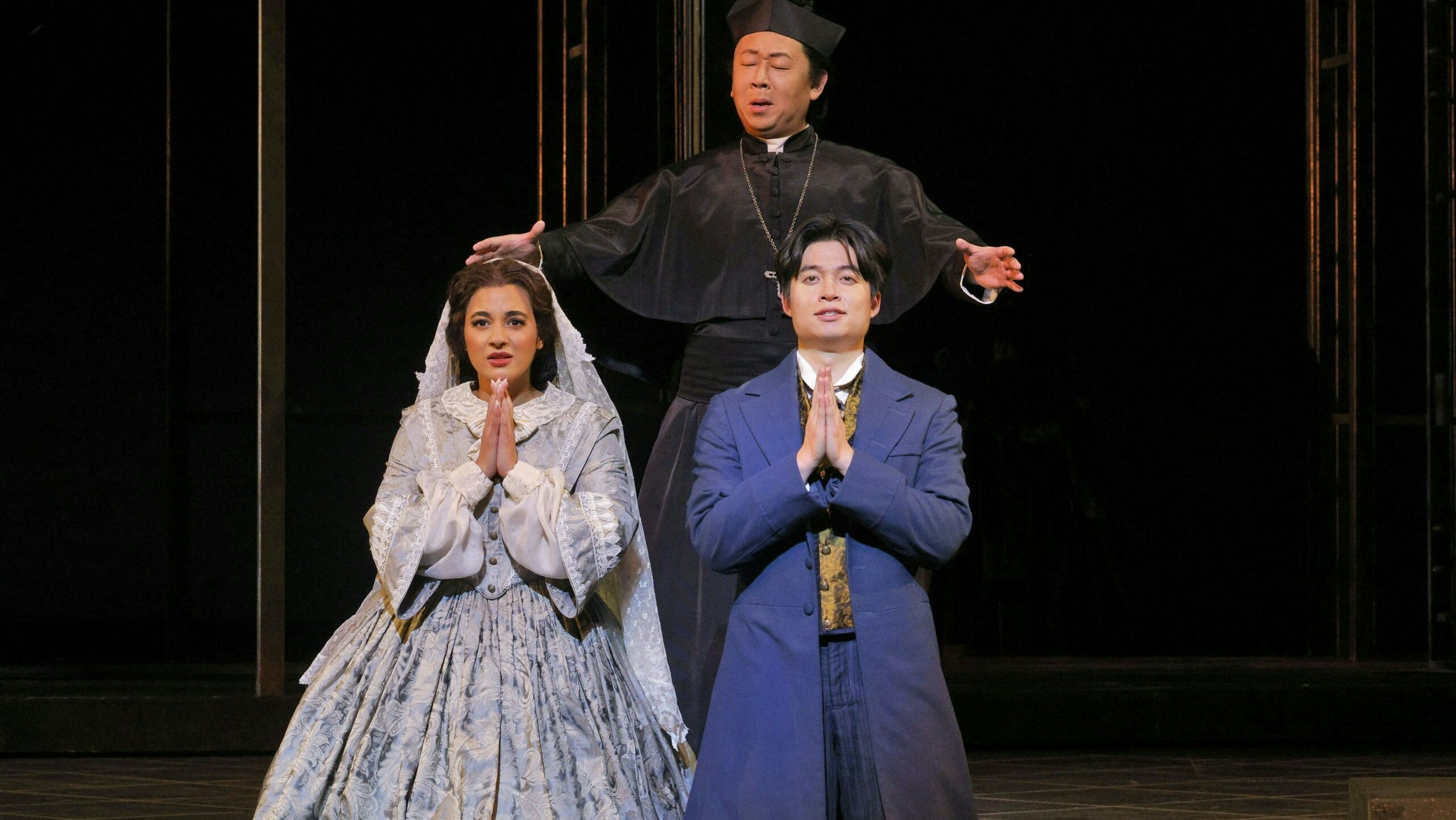
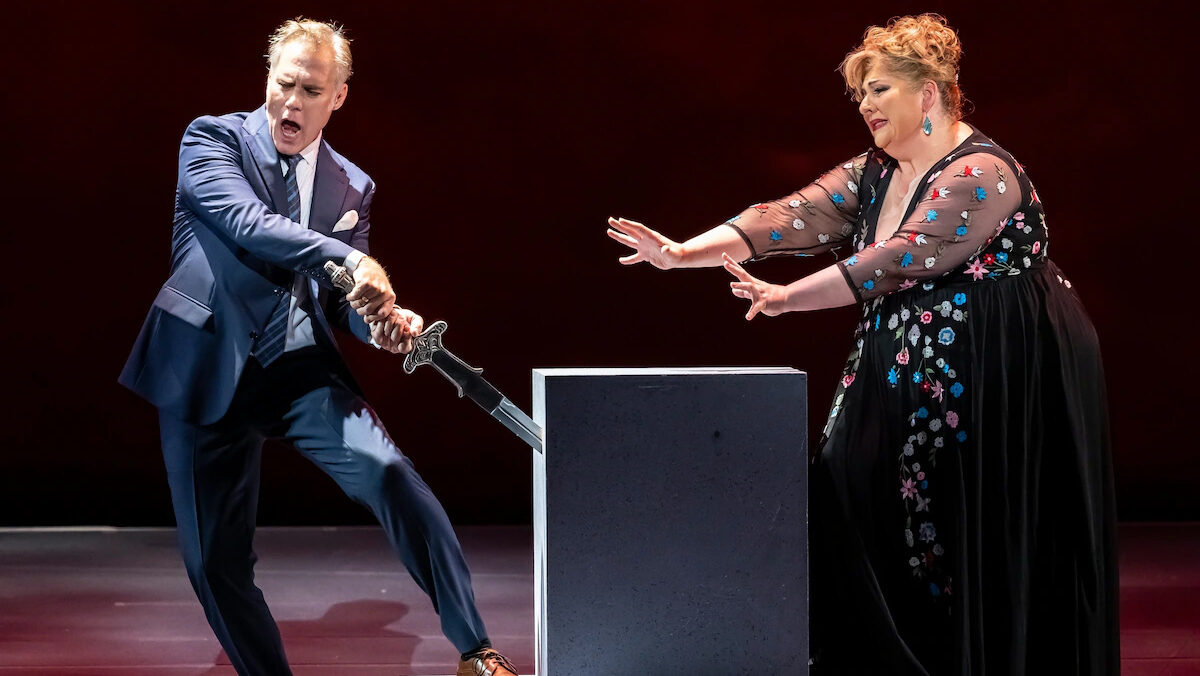
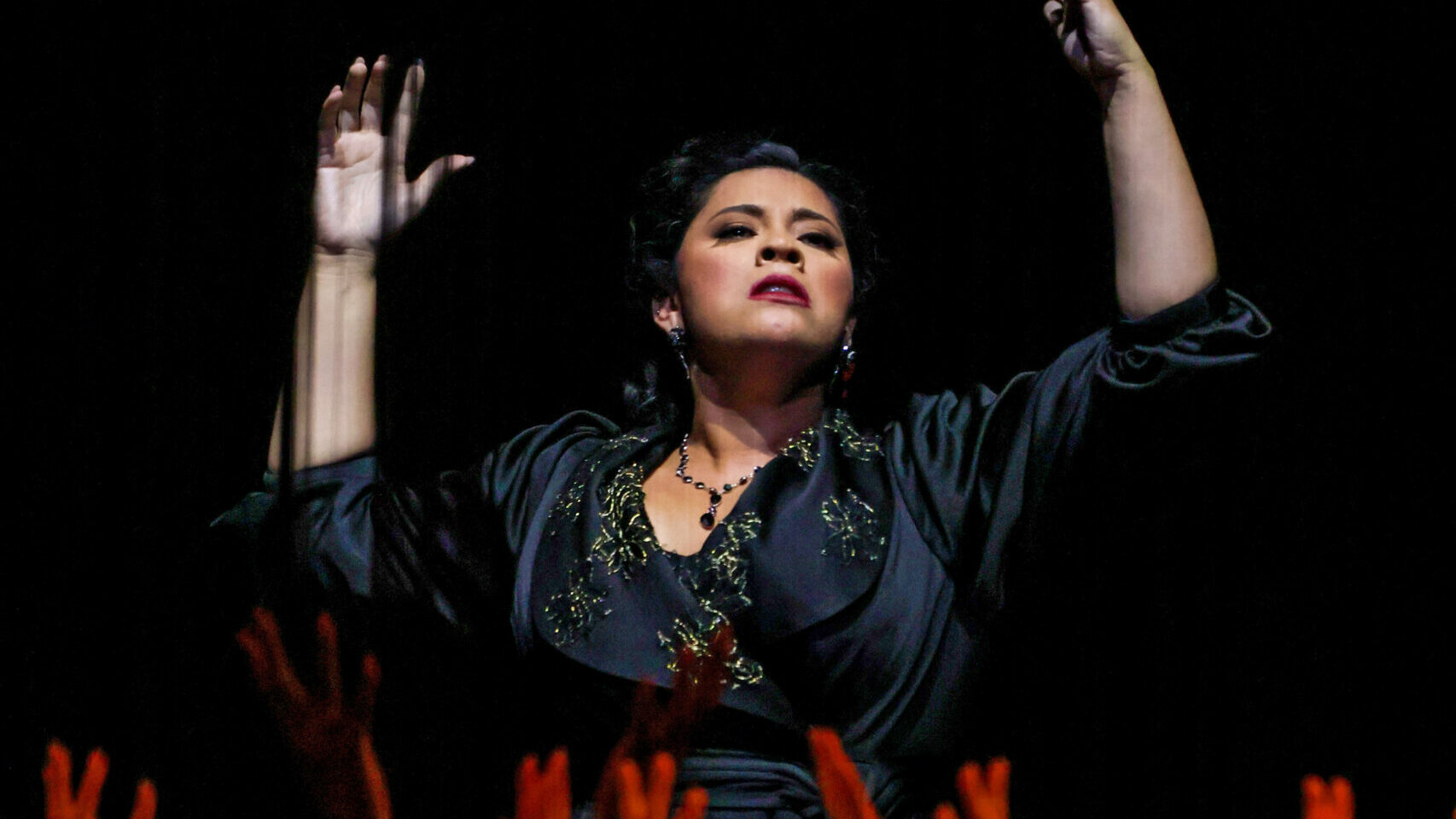
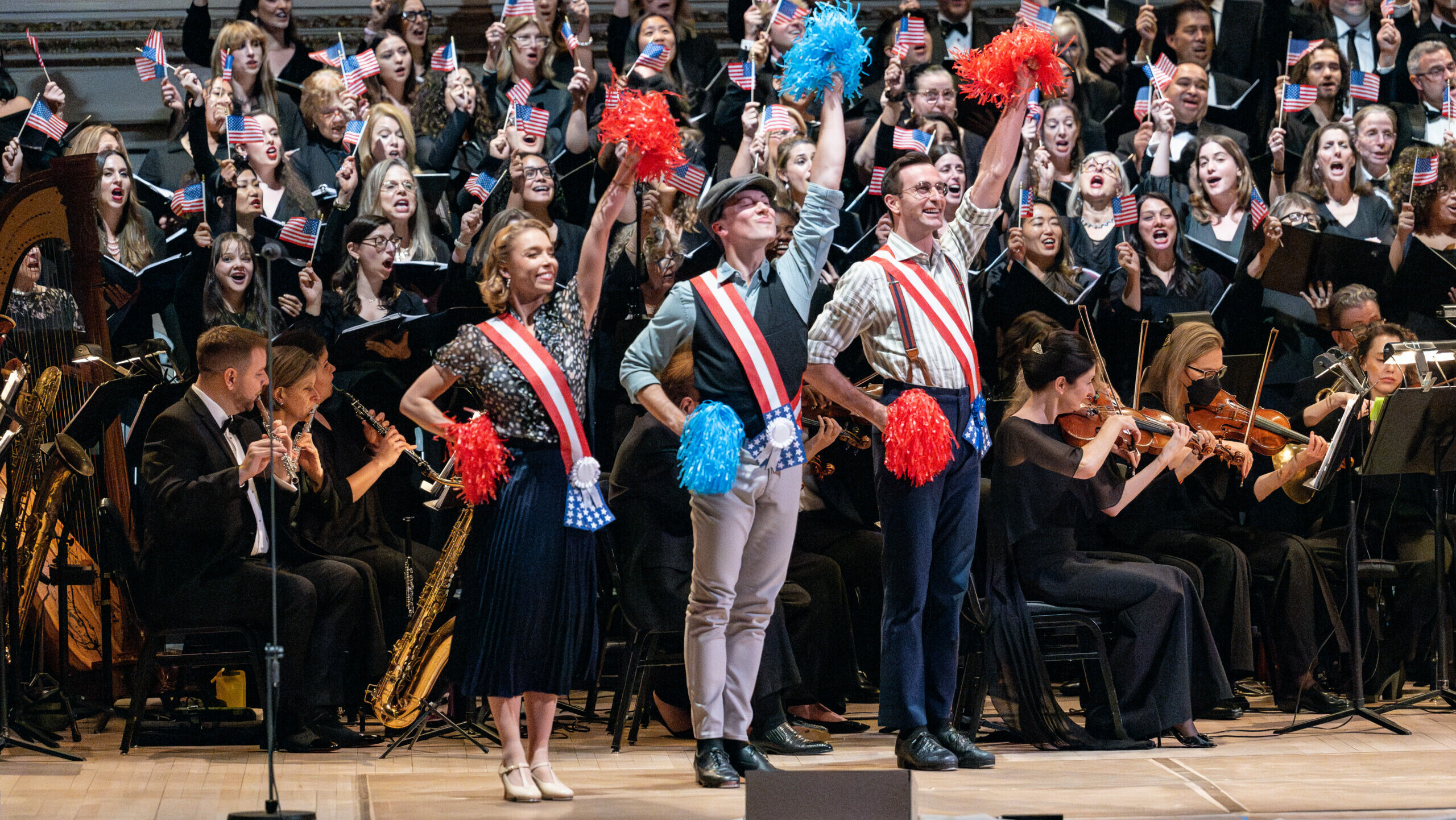
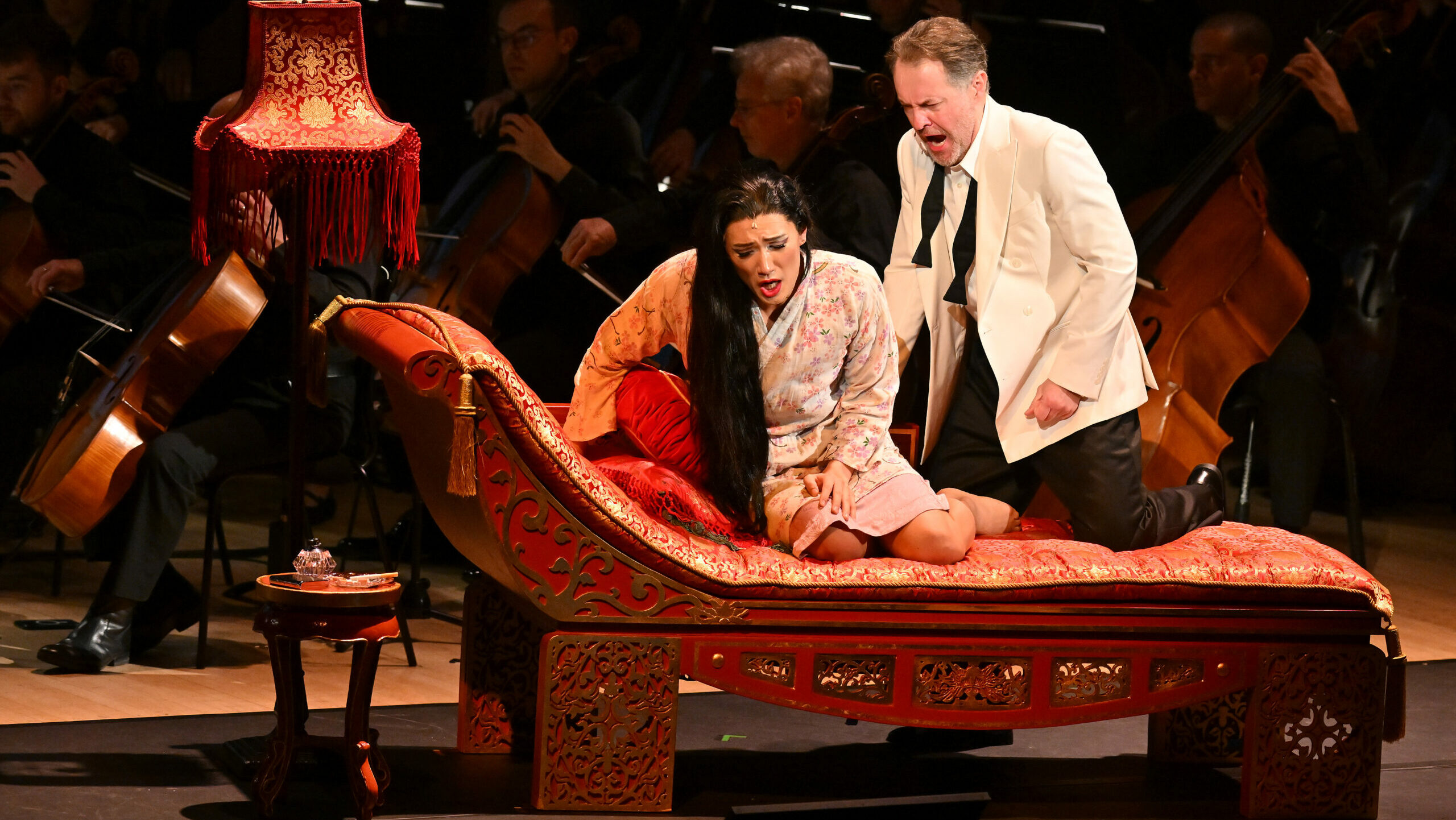



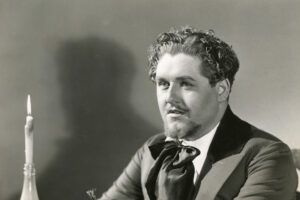




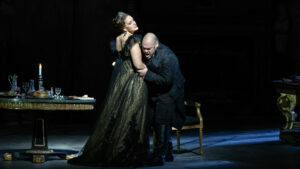
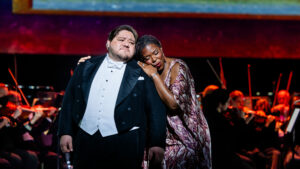




Comments